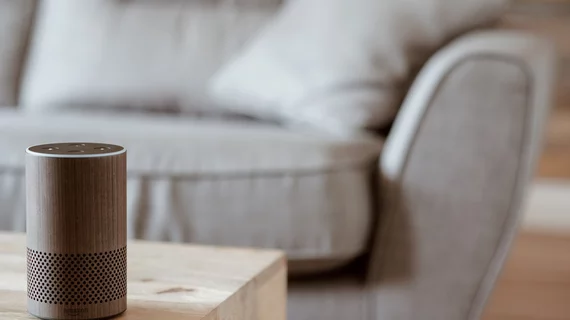Smart speakers expected to penetrate healthcare without disrupting it very much
Artificially intelligent personal digital assistants controlled by voice à la Amazon Echo and Google Home have a bright future in healthcare. However, they will neither threaten health workers’ jobs nor draw strict regulatory action despite persistent concerns over privacy and security.
Such are the prime predictions of an international panel of up to 35 subject experts and industry stakeholders recruited to collaboratively consider various future scenarios and arrive at a consensus on the likelihood of each.
The panelists represented voice-technology developers, clinicians, and representatives of academia, governmental health agencies and nonprofit health associations. All had familiarity with the technology.
The virtual group had strong consensus on a scenario describing the use of voice-controlled intelligent personal assistants (VIPAs) for supporting elderly people, especially in situations requiring them to recall personal medical history.
Other applications in this same scenario included tech-supplied information, guided self-therapy and communication with healthcare professionals.
The study was conducted at the University of Potsdam in Germany and published April 9 in the Journal of Medical Internet Research.
“Although conversational assistants are not expected to replace medical workers, their use as operational supporting tools for healthcare professionals has strong potential in the industry,” write study authors Alena Ermolina, MSc, and Victor Tiberius, MBA. “To be able to meet consumer expectations and withstand competition within the next five years, healthcare companies are advised to carefully observe current research and development activities in the field of conversational artificial intelligence and allocate resources to optimize business processes using VIPAs.”
The study is posted in full for free.

